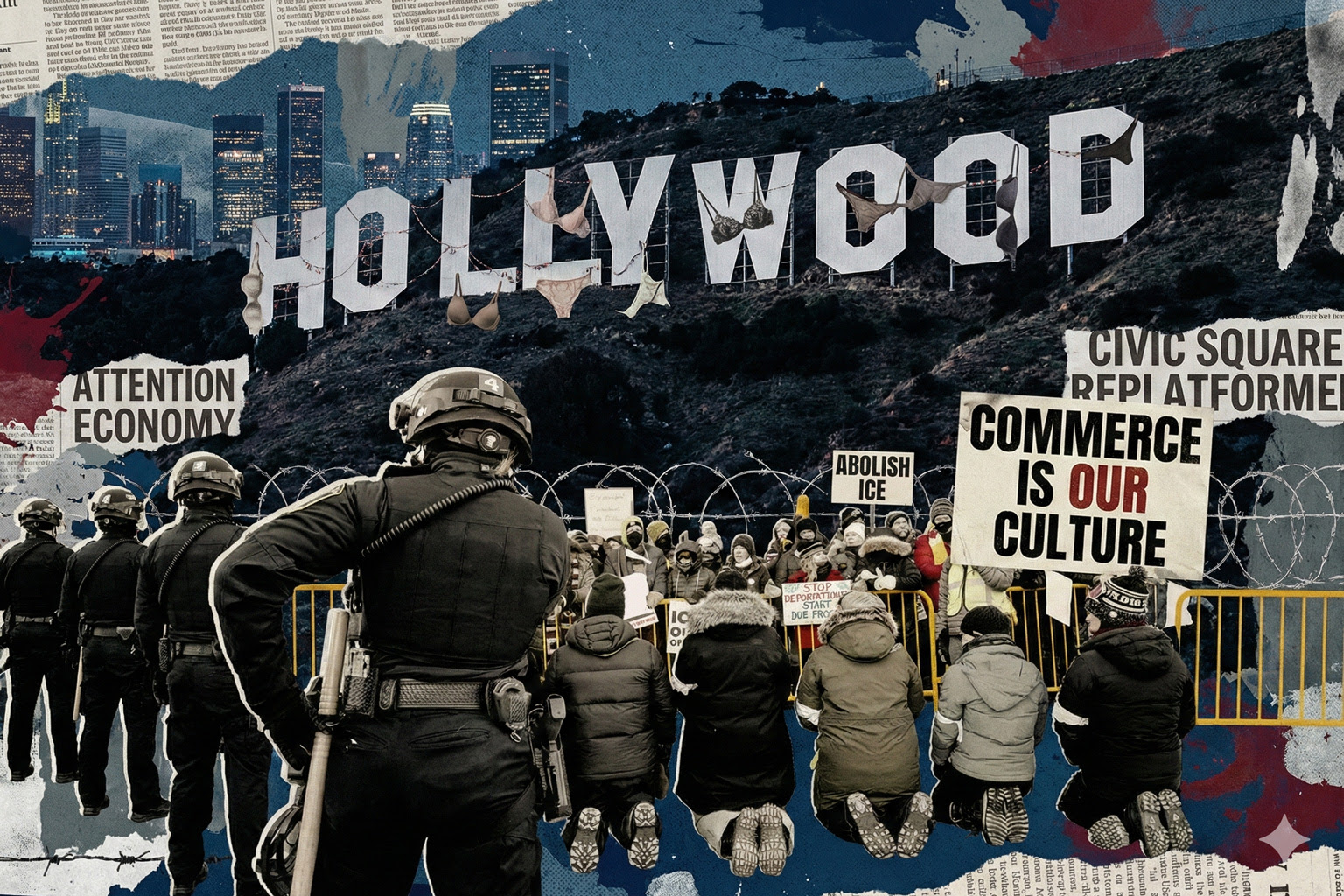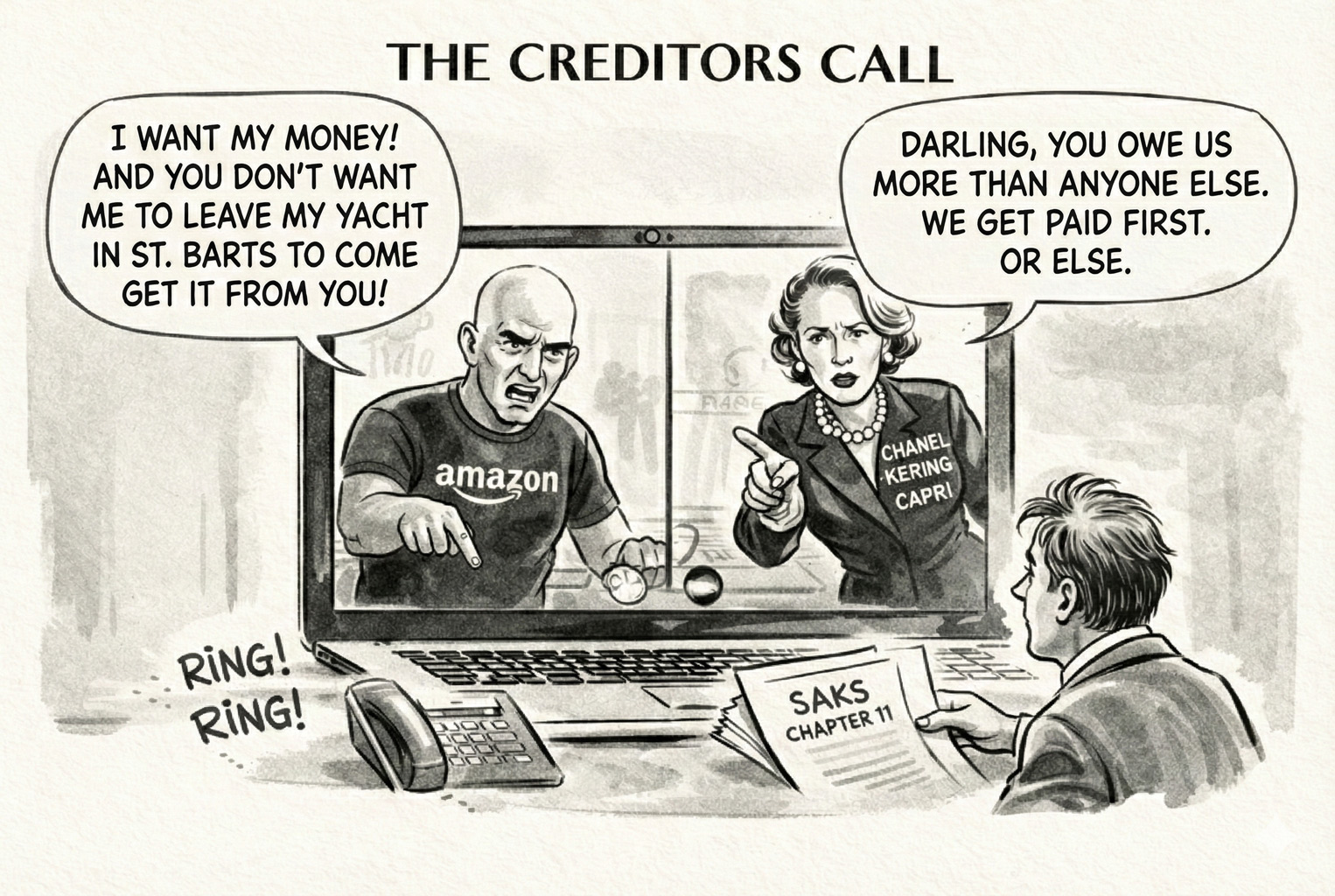
The Innovator’s Dilemma is No Longer Valid

Clayton Christensen’s seminal work The Innovator’s Dilemma held a strong thesis: large organizations fail to adapt due to their size. To prevent being disrupted, they must adopt the mentality of the disruptor.
The proposal: found or acquire a disruptive subsidiary and charge them with being experimental.
But today you don’t need M&A to become a disruptor. You can ruthlessly copy the playbook and achieve better results without the risks of being the first-mover.
Consider KFC’s Mother’s Day offering. You read that right. Make plans on May 1-3 to log into the KFC app and order a chicken bouquet, with both flowers and chicken strips, for your dear old mom. Once in the app, KFC will be able to market to you individually, with offers, loyalty, and push notifications.
This streak of absurdity from KFC has been paying off, but KFC didn’t cultivate the environment in which they’re allowed to play so freely with their brand. Just as Target didn’t cultivate the environment which made millennial consumers thirsty af for the “DTC” aesthetic. They aren’t innovating, and they’re not disrupting. On the contrary. They’re benefitting from the disruption. They’re leaning into it.
A real dilemma: the Innovator’s Dilemma is no longer true in a world that is waking up to realize that digital allows a brand to have multiple personalities. Instead of “brand erosion”, we now see channel-specific voices for brands emerge and form facets. Because audiences are more niche than ever, brands must also become more niche.
Speaking with researcher Rachel Swanson this week, I was struck by something she told me.
We’ve always thought of it as ‘selling out’ to mass market when luxury brands come down… think Gucci in Roblox. But what’s actually happening is that niche consumers are tearing brands apart.
The idea of “brand” as a singular concept is as dated as the idea of a consumer having just one personality. We’re different people at work than we are at home.
The personification of brand today is as true as the brand-ification of the person. The two are converging: brands are becoming people, and vice-versa. And so the Innovator is now the Disrupted. Partly due to a shift in culture, yes. But also due to the way capital has flowed — heavily favoring the high-risk nascent disruptor.
That might now be changing due to [gesturing wildly around] all that’s going on.
So we step back and behold that the disruptors are being disrupted. MSCHF and Glossier, and all of their PR and capital and tweetstorms, have created more value for KFC and Target than they can ever conceivably hope to earn.
It’s a shame that you can’t take cultural capital to the bank. Or, maybe if you could, Target and KFC would be even richer.
— Phillip


Mama Mia. CARBONE BEACH is a pop-up collocated around the Miami F1 event next week in Miami Beach. Chef Mario Carbone will be providing the dining experience, that is described as “having a sense of theater and luxury synonymous with the restaurant’s dining experience since it opened.” Tickets are $3,000 (plus tax) per person, per night.
Digital Marketplaces Fight for Labor? Etsy, eBay, Mercari, and Poshmark have joined together in The Coalition for 1099-K Fairness, in an effort to increase the threshold for tax reporting among online sellers; recently lowered to $600. The Coalition asserts that sellers may experience extra confusion, extra paperwork, and a lack of necessary documentation when tax season rolls around. Not mentioned, though relevant, is that this results in additional reporting and bookkeeping for the retailers.
More Sights & Sounds. Aldi plans to phase out all plastic bags across all locations by the end of the year 2023. Airbnb has announced that their employees will be able to work remotely forever. Snap has released Pixy, a little yellow drone camera for when you don’t have someone to take a video for you. And Snapchat is adding a new AR feature for shopping called “Dress Up.” For the first time in seven years, Amazon saw its first quarterly loss, and the company’s stock fell 12%. Salesforce is looking to a low-code future in an attempt to simplify the complexity of seamlessly using all of its services combined. A24, a notoriously hip film studio known for shows like Euphoria, is selling membership programs that give access to all their properties. Scientists are learning new sustainable ways to build strong composite materials, based on the natural organic technology found in the copper jaws of the bloodworm. And this hot girl summer, the aesthetic to shoot for is “coastal grandmother.”


The Gorpcore Era. The North Face has partnered up with Online Ceramics for Earth Day. The technical wear with “don’t worry be happy” vibes feature unique pieces made from factory scraps. As newsletter author Clayton Chambers relished: “Gorpcore projects will continue to mature. And if this is what maturation looks like, give me this all day”.
Mixing High and Low. In a partnership that caused a literal doubletake from this writer, Walmart is debuting an elevated activewear brand in collaboration with fitness couple Michelle Smith, a fashion designer, and Stacey Griffith, a SoulCycle instructor. SoulCycle, the elitist boujee indoor cycling studio, has traditionally partnered with the likes of Lululemon and Nike. Stacey Griffith’s partnership with Walmart makes us wonder if the two audiences are compatible, or at the least, does SoulCycle know about this?


Cereal Finally Innovates. Tropicana has been listening to your childhood thoughts, and will soon be releasing Tropicana Crunch, possibly the world’s first cereal meant for orange juice. What’s the word for when you want to say “cool” and “gross” at the same time? Given supply chain and inflation woes, this might be more expensive than Avocado Toast. Don’t tell Dave Ramsey.
NFTs as Membership Card. In March, we wrote about the Bored Ape restaurant opening in LA, called Bored & Hungry. To dine as a patron you must hold an NFT of the Bored Ape collection. Others have since followed, including Flyfish Club, which is partly owned by Gary Vaynerchuk. The food is better than a screenshot, and many are raving about the quality of the experience and food. But how do we trust a crowd that’s already prone to hype?

Fictosexuals. Akihiko Kondo, a Japanese man says his 10 year love story and eventual marriage to a fictional character rescued him from a deep depression, and he plans to be faithful to her until death. Mr. Kondo knows she is not real, but has also known for a long time that he did not want a human partner. He is part of a growing group of people who identify as “fictosexuals,” but admits that his family and co-workers declined to attend their ceremony.
Editor’s note: we covered the rise of Velebs and virtual influencers in Insiders #059. What we did not anticipate is that emergent trends that have meaningful cultural impact do so in two ways: 1) they must be commercially viable, meaning they must be transactional. And 2) they must have an impact on psychosocial interaction, belonging, community, or relationships. We wrote in that piece:
It doesn't take very many brain cells to see why a virtual celebrity could be advantageous. Virtual celebs - "velebs?" - don't harm stocks, they don't go on benders, and they don't get Me-Too'ed.
While this seems wild now, it is a tale of the future that is to come. If a Metaverse were to exist in the future, falling “in love” with an avatar may be commonplace. Matrimony, however, is a contractual agreement, and the jury’s out on how sufficiently advanced an AI must become to enter into a legal agreement.
The Modern Labor Movement. Labor movements have popped up across the United States; from Amazon to Starbucks, to Delta and Apple. Starbucks workers, in particular, are generally college-educated workers who have had to work harder than previous generations to achieve middle class status, as well as fight against recurring bouts with unemployment. One result of them taking jobs they didn’t expect to have to take after getting a degree, is having a higher population in this layer of the workforce pushing for better working conditions, and even initiating the formation of unions.











.svg)
